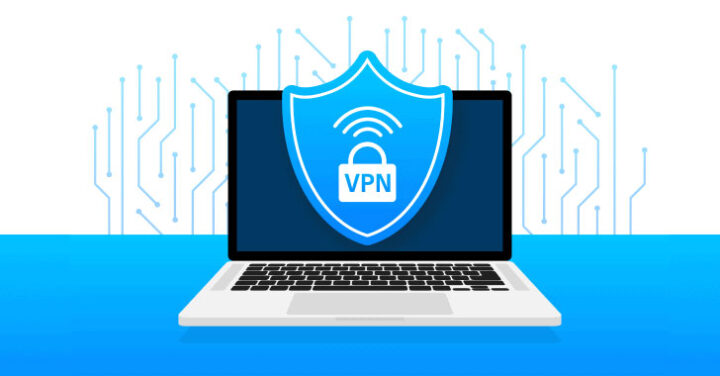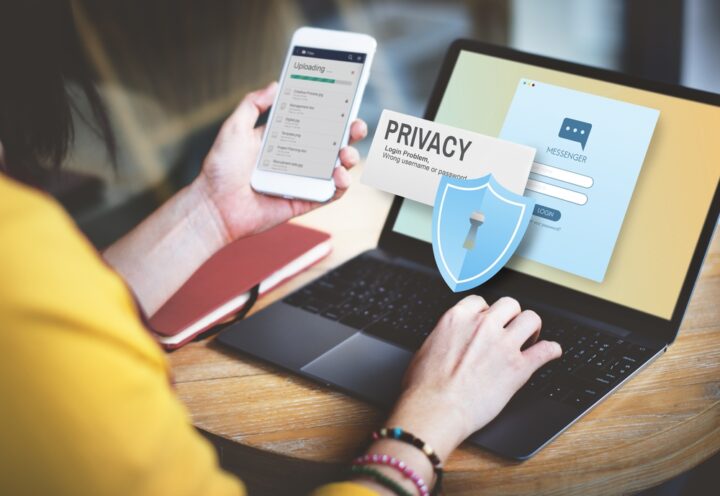Achieving Digital Freedom: Steps To Safeguard Your Online Privacy

In an era where our lives are increasingly intertwined with the digital realm, the concept of personal privacy has taken on a new and profound significance. With every click, tap, or swipe, we leave behind a trail of data that paints a vivid portrait of our online personas. While the digital age has brought us convenience, connectivity, and boundless opportunities, it has also exposed us to unprecedented risks to our privacy and security.
Threats To Online Privacy And Freedom

In our rapidly evolving digital landscape, where the internet is an integral part of daily life, the pursuit of online privacy and freedom has become increasingly complex, as showcased by Rush Radar in many of their invaluable articles. While the digital age has provided us with unprecedented connectivity and opportunities, it has also exposed us to a multitude of threats, including intrusive government surveillance and the actions of malicious bad actors. In this article, we will delve into these threats, shedding light on the challenges they pose to our digital existence.
Government Surveillance

Throughout history, governments have played a significant role in violating individual rights. The 20th century, in particular, bore witness to governments as perpetrators of mass surveillance and oppression. The tumultuous events of that century underscore the potential dangers that governments can pose to our privacy and freedom.
Mass Surveillance: Governments, often in the name of national security, have deployed sophisticated surveillance apparatuses capable of monitoring vast swathes of online activity. These programs can include the collection of metadata, internet traffic analysis, and even the interception of communications. The chilling effect of mass surveillance can stifle free speech and discourage individuals from freely expressing their thoughts and opinions online.
Data Retention Laws: Many countries have enacted data retention laws that require internet service providers (ISPs) to store user data for extended periods. This data can be accessed by government authorities without a warrant, leading to potential abuses of power and unwarranted intrusion into the private lives of citizens.
Censorship and Content Control: Some governments employ censorship tactics to control the flow of information on the internet. This can include blocking access to websites, restricting social media platforms, and suppressing dissenting voices. Such actions infringe upon the fundamental principles of free expression and access to information.
Bad Actors
Beyond government surveillance, the digital realm is fraught with individuals and groups with malicious intent. These bad actors exploit vulnerabilities in the digital infrastructure to compromise online privacy and commit cybercrimes.
Hackers and Cybercriminals: Cybercriminals employ various tactics, such as phishing, malware, and ransomware attacks, to steal personal information, financial data, and compromise the security of individuals and organizations. These malicious actors thrive on exploiting unsuspecting internet users.
Identity Theft: The theft of personal information and identity fraud continue to be major concerns. Criminals use stolen information to impersonate individuals, commit financial fraud, and wreak havoc on victims’ lives.
Online Harassment and Cyberbullying: The anonymity of the internet provides a breeding ground for online harassment and cyberbullying. Individuals can become targets of harassment campaigns that invade their privacy, damage their reputation, and affect their mental well-being.
Get A VPN To Protect Your Activity

When it comes to reliable options, ProtonVPN stands out as a top choice. With ProtonVPN, you can browse the internet with confidence, knowing that your data is encrypted and your online activities remain anonymous. Whether you’re concerned about protecting sensitive information, evading censorship, or accessing geo-restricted content, a VPN like ProtonVPN can provide you with the peace of mind you need in an increasingly interconnected world. By masking your IP address and routing your traffic through secure servers, ProtonVPN offers a robust solution to safeguard your online presence, making it an excellent tool for both privacy-conscious individuals and those who prioritize digital security.
Use A Password Manager To Safeguard Your Keys
Password managers emerge as invaluable tools in this endeavor. Two standout options in this realm are Bitwarden and KeePass, both renowned for their robust features and commitment to safeguarding your sensitive information.
Bitwarden is a user-friendly, open-source password manager that excels in accessibility. It offers cross-platform compatibility, including browser extensions and mobile apps, ensuring that your passwords are readily accessible across all your devices. Bitwarden also employs strong encryption to store your passwords securely, and it provides the convenience of secure password generation and automatic form filling, simplifying your online experience without compromising safety.
On the other hand, KeePass is a stalwart in the world of password security. It’s a locally hosted, open-source solution that allows you to keep your passwords completely under your control. KeePass stores your passwords in an encrypted database, accessible only with a master password or key file. Its offline nature means your sensitive data never leaves your device, offering an extra layer of protection against potential online breaches.
Both Bitwarden and KeePass share the common goal of enhancing your privacy and security by offering secure password management. The choice between them often boils down to your specific needs and preferences. Bitwarden shines for its convenience and cross-device compatibility, while KeePass appeals to those who prioritize complete control and are comfortable managing their database locally. Whichever you choose, integrating a password manager into your digital life is a pivotal step toward fortifying your online presence and keeping your personal information out of harm’s way.
Block Ads And Trackers With An Ad Blocker

Utilizing an ad blocker such as AdGuard can be a game-changer for enhancing your online experience. AdGuard is a robust and versatile tool designed to provide users with greater control over their browsing, offering a myriad of benefits ranging from improved privacy and security to enhanced page load times.
One of the primary advantages of AdGuard is its ability to curtail invasive advertising tactics. It effectively filters out pop-ups, banners, video ads, and other annoying forms of online advertising, thereby delivering a cleaner, more streamlined browsing experience. This not only minimizes distractions but also reduces the risk of inadvertently clicking on malicious ads or falling victim to phishing attempts often hidden within deceptive ads.
Privacy is another critical aspect that AdGuard addresses. By blocking tracking scripts and third-party cookies, AdGuard helps shield your online activity from prying eyes, giving you a greater sense of anonymity and control over your digital footprint. This not only protects your personal data but also helps prevent advertisers from building detailed profiles about your online behavior.
Furthermore, AdGuard contributes to faster page loading times. By eliminating the need to load resource-intensive ads and trackers, web pages load more swiftly and efficiently. This not only saves time but also reduces your data consumption, making it particularly advantageous for those on limited data plans or with slower internet connections.
AdGuard is also highly customizable, allowing you to fine-tune its settings to suit your preferences. You can whitelist websites you want to support, create custom filtering rules, and even block specific content categories or types of ads.
However, it’s important to remember that while ad blockers like AdGuard offer numerous benefits, they can affect the revenue of content creators and publishers who rely on advertising for income. Therefore, it’s a good practice to whitelist websites you trust and want to support.
Use Privacy-Friendly Alternative Services
Adopting privacy-friendly services like the Brave browser, Signal for messaging, and open-source 2FA (Two-Factor Authentication) options like Raivo can be a proactive step toward safeguarding your personal information.
The Brave browser distinguishes itself by offering robust privacy features right out of the box. Built on Chromium, Brave blocks intrusive ads and trackers by default, ensuring a cleaner and faster browsing experience. Furthermore, it provides a built-in feature called “Shields” that allows users to control their privacy settings easily. By blocking malicious scripts and enforcing HTTPS connections, Brave helps protect your online identity and data while you browse. Additionally, it supports a privacy-preserving cryptocurrency called BAT (Basic Attention Token), which allows you to reward content creators directly while maintaining your anonymity.
Signal, on the other hand, is a messaging app renowned for its commitment to end-to-end encryption. It ensures that only you and the recipient can read your messages, making it incredibly resistant to surveillance and data breaches. Signal also allows for encrypted voice and video calls, further enhancing your privacy. It’s a standout choice for those who prioritize secure and private communication.
When it comes to Two-Factor Authentication, Raivo offers an open-source solution to fortify your online accounts. Unlike many proprietary 2FA apps, Raivo is transparent in its code, which means its inner workings can be independently verified for security. By generating time-based OTPs (One-Time Passwords) that expire quickly, Raivo adds an extra layer of security to your accounts, ensuring that even if your password is compromised, your data remains safe.
The common thread among these privacy-friendly services is their commitment to transparency, security, and data protection. They prioritize user privacy over profit and adhere to open-source principles that allow for peer review and accountability. While using such services can significantly enhance your digital privacy, it’s essential to remember that privacy is a multifaceted concept, and adopting a holistic approach, including strong password practices and regular software updates, is key to safeguarding your online identity and data in an increasingly interconnected world.
Conclusion

In an era where our lives are increasingly intertwined with the digital realm, safeguarding our privacy and security online has never been more critical. Achieving this goal requires a multifaceted approach that combines technology, awareness, and responsible practices.
First and foremost, adopting privacy-friendly tools and services like the Brave browser, Signal for messaging, and open-source 2FA options such as Raivo can provide a solid foundation. These choices prioritize user privacy, encryption, and transparency, contributing significantly to a safer online experience.
However, it’s equally important to cultivate a heightened awareness of digital threats and the tactics used by cybercriminals. Educating oneself about phishing attempts, malware, and other common online risks empowers individuals to recognize and respond to potential threats effectively.
Additionally, robust password management and regular updates of software and operating systems are fundamental practices that can’t be overlooked. Strong, unique passwords and Two-Factor Authentication (2FA) help fortify your accounts against unauthorized access.
Furthermore, maintaining a cautious approach to sharing personal information and limiting what you disclose online can significantly reduce your exposure to privacy risks. Being mindful of the data you share and the permissions you grant to apps and services is a crucial aspect of online privacy.
In conclusion, achieving privacy and security online is an ongoing commitment. It requires a combination of technology, knowledge, and vigilance. By embracing privacy-conscious tools, staying informed about digital threats, and practicing responsible online behavior, individuals can take meaningful steps toward preserving their online privacy and security in an increasingly interconnected world. Ultimately, it’s a collective effort, and as users, we have the power to shape our online experiences in a way that prioritizes our digital well-being.

